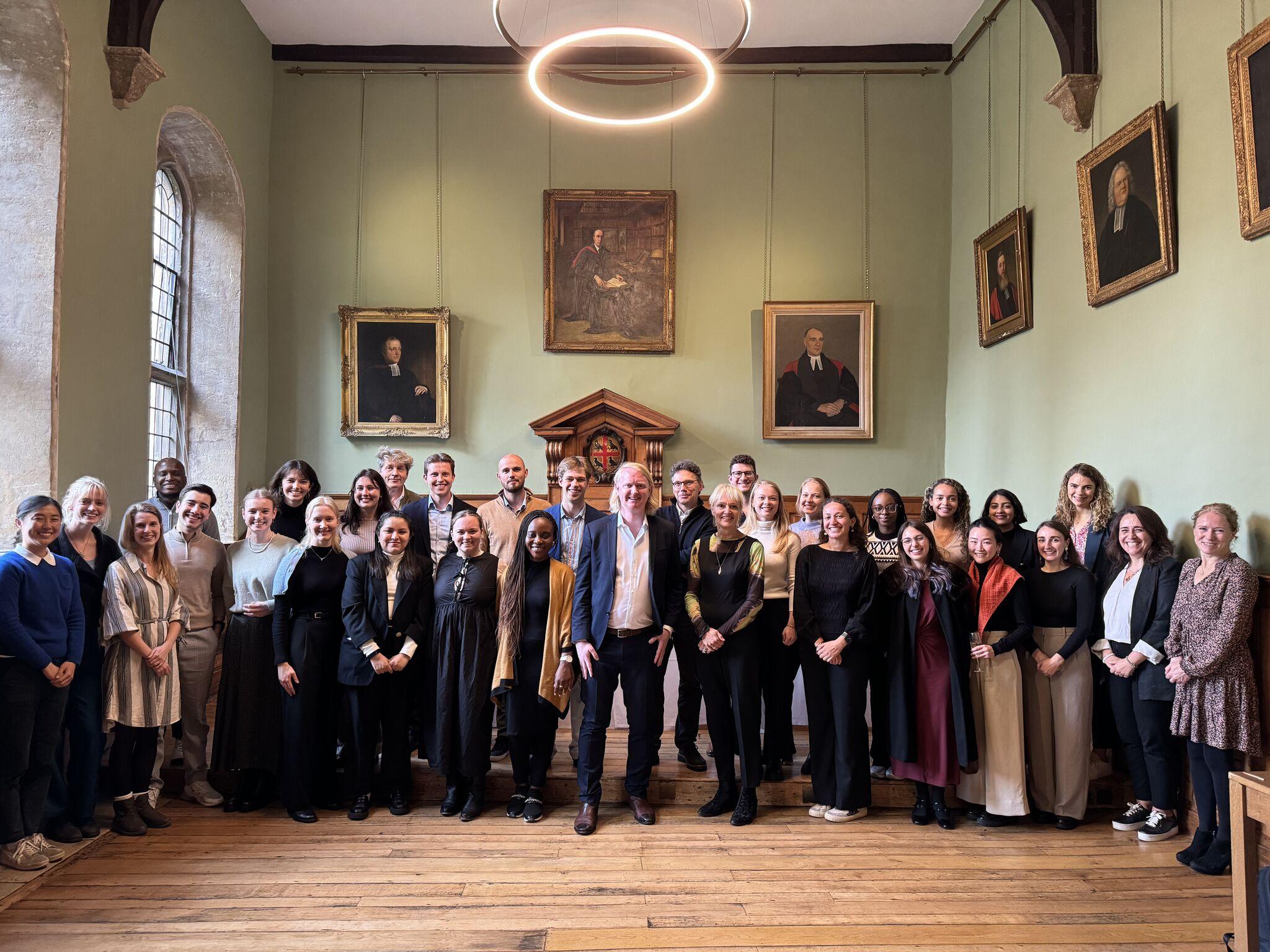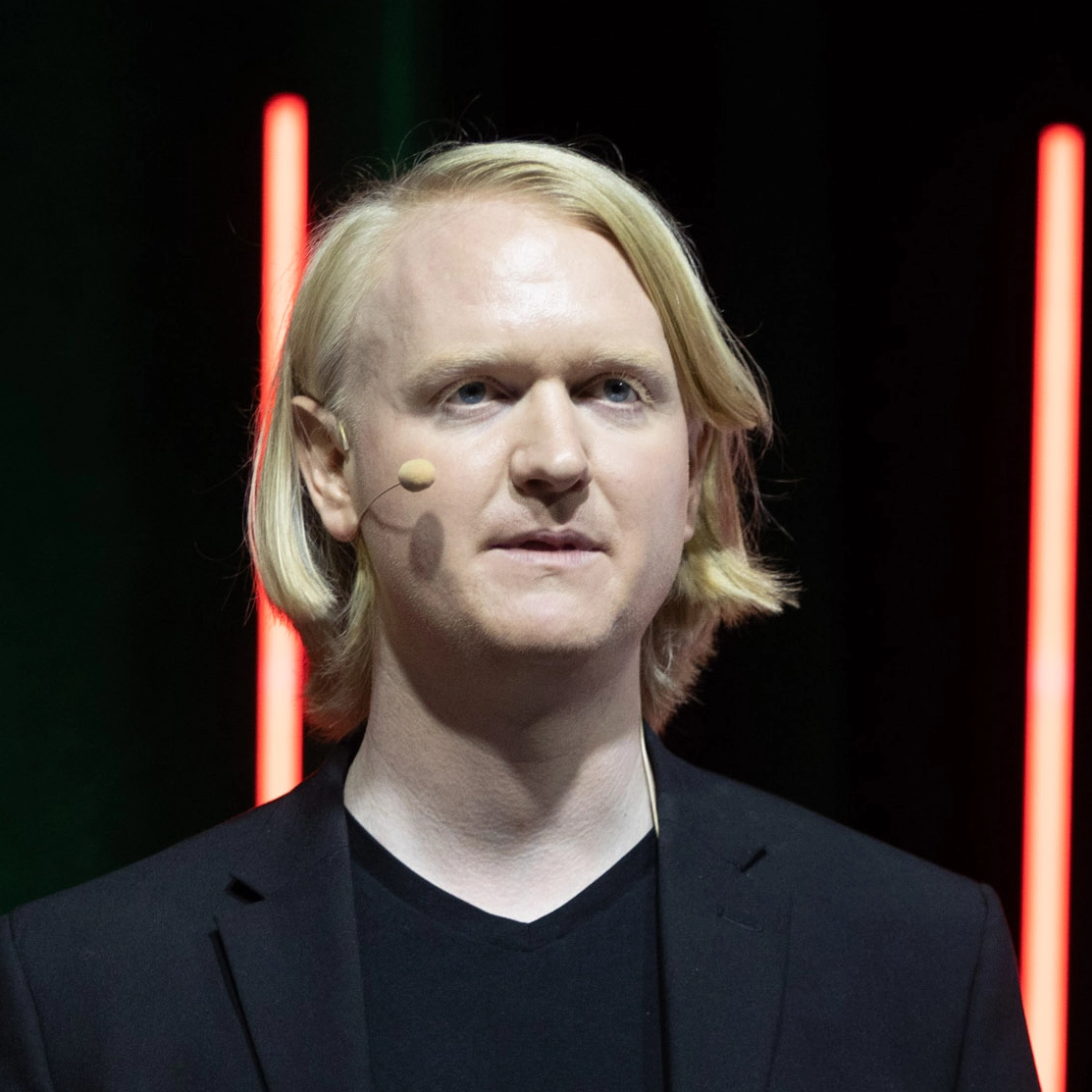Oxford Smith School MSc draws global applicants to tight-knit, student-driven cohort

The Oxford Smith School's MSc in Sustainability, Enterprise and the Environment (MSc SEE) received 691 applications for its 2024-25 cohort, an increase of 118 from last year. Launched in 2021, the programme admits a maximum of 35 students per year, and has been the most applied to Oxford graduate programme per place for two years running.
Applicants are coming to the Smith School’s MSc from all over the world, with more applying from Africa and Southeast Asia compared to previous years. “It's a really healthy mix. And I think it does reflect what we're trying to do with the programme in terms of addressing truly global issues,” says Director Dr Laurence Wainwright.
The MSc SEE’s small cohort size has enabled Dr Wainwright and his team to tailor the programme to the student’s needs throughout the year. Feedback has been excellent he says, with students reporting high levels of satisfaction with the syllabus and strong camaraderie amongst their peers.
“The cohort was incredible and we became really close,” says former McDonalds sustainability manager and current student Jordan Calverley, who studied the MSc as part of her 1+1 MBA. We organised all sorts of social activities and trips throughout the year.
It was really good to study with people from all over the world from such different professional and academic backgrounds, who come at the problem of climate change from unique angles. I made a lot of great friends and I'm very confident that this is a network that I will have for the rest of my career.
Dr Wainwright, who was recognised for his teaching excellence by the University this year, says that creating an environment where every student is able to realise their academic, personal and social potential is the MSc SEE’s core mission. “We try to foster a cohort culture where everyone feels supported, valued, included, comfortable being themselves, and able to truly speak their mind with confidence and courage” he says.
When it comes to impact, the programme has been able to punch above its weight due to the exceptional quality of the students who enrol, with two alumni – Claudia Herbet Colfer and Lucy Lyons - recognised in Forbes 30 under 30 this year. “The MSc helped me develop as a professional” says Claudia, who is now Head of Programming at UN Global Compact. "Being surrounded by world-class leaders in the field who were knowledgeable beyond their years was not only incredibly inspiring but it also helped me better understand myself as a professional."
Despite the demanding academic programme, some students also have an opportunity to shape the research of the Smith School. This year, Harry Lightfoot-Brown, a civil servant and former professional rugby player, co-authored a policy brief on the costs of net zero for the UK. And Anastasiia Zagoruichyk, who came to the School as a Ukrainian refugee scholar, led research into Ukraine’s potential for a green economic recovery.
However, for Dr Wainwright, the highlight of the year-long programme are the field trips, which include outings to businesses and energy companies in the UK and Denmark. “Visiting these companies and hearing from senior sustainability leaders not only enables students to transcend the theory-practice divide, but also serves as a valuable opportunity to hear first-hand accounts as to what a career in sustainability entails,” he says.

